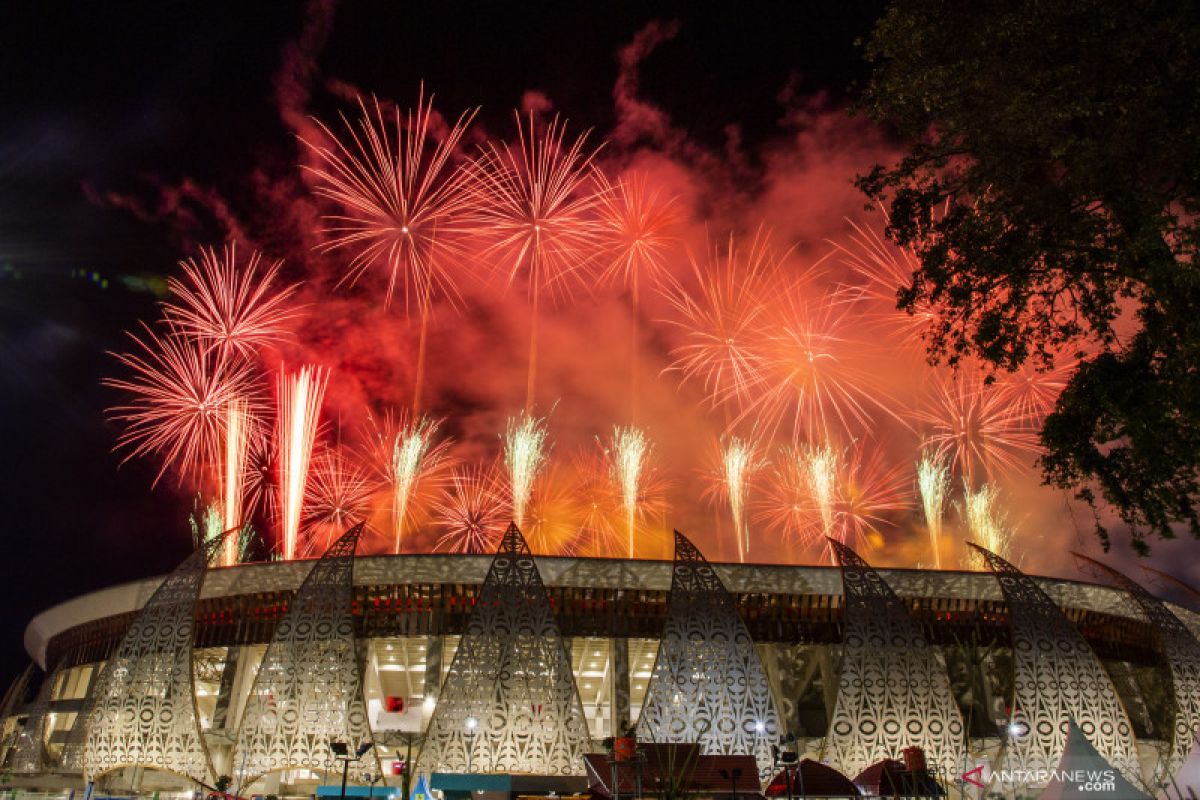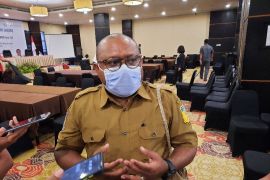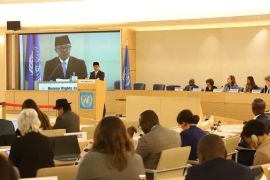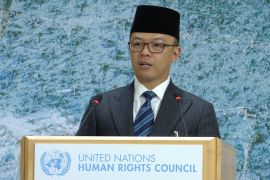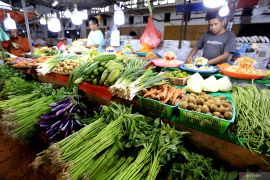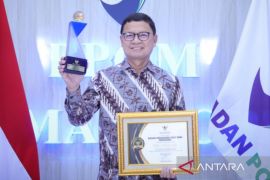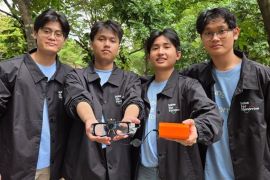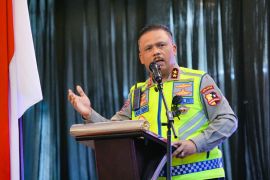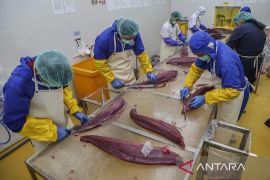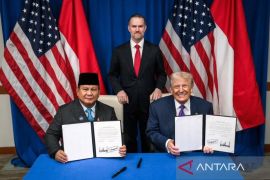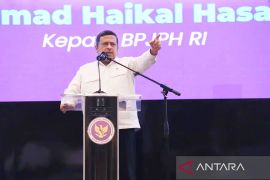The Regional Government, XX National Sports Week Central Board (PB PON), security forces, Papuans, athletes and officials, as well as tourists managed to ensure that the national multi-branch sporting event ran smoothly. The event also produced as many as 53 new records.
This success demonstrates that sports is not just about winning or losing. The Papua XX National Sports Week clocked several important contributions, both for Papua and the Indonesian people.
First, the games ran smoothly on account of the construction of sports facilities and infrastructure of international quality, supported by other infrastructure, such as roads, bridges, electricity, waterways, and several supporting hotels. In future, Papua can utilize the facilities to develop sports talents for Papua and the adjoining provinces, be it coaching achievements or organizing national and international competitions.
Second, the national event had provided an opportunity for four match locations in Jayapura City, Jayapura District, Mimika City, and Merauke District to serve as tourism sites. This included the surrounding area. Historical locations comprised the Mac Arthur Monument, Skouw Cave, Sentani's Asei Tua Church, Pepera Monument, and Japanese Cave History Tour. Even the refugee camp in Boven Digoel came under the spotlight owing to the National Sports Week.
The beautiful scenery offered by Lake Sentani or the Holtekamp Red Bridge in Jayapura, both before sunrise and sunset, has drawn visitors to capture selfies. On the other hand, Mimika District has the Lorentz National Park, PT Freeport mining area, and Kuala Kencana or Iwaka River, which are still in the Kuala Kencana area complex. All these are tourist destinations potentially attracting tourists to come and visit Papua.
Papua should be a unique tourist destination, such as Bali, owing to the unique culture of its people. The combination of natural beauty and culture is ideal to draw the tourists' attention.
Third, there are some 25 thousand nokens (traditional Papuan bags), local products typical of the Papuan population, given as souvenirs to all athletes, officials, and committees. The figure also increased since several spectators were present there to buy the nokens.
Other local products apart from nokens were also sold. Local Papuan products have the potential to be exported to other countries in the coming future, and sports can serve as a medium or a means to introduce these products to the international community.
Fourth, despite being hosted amid the pandemic, the Papua XX National Sports Week remained a great source of motivation and energy for the athletes to deliver their peak performance for the sake of their respective regions. This was apparent from the 53 new records at both the national level and at the National Sports Week.
West Java stood first, with a total of 133 gold medals, 105 silver medals, and 115 bronze medals. Meanwhile, the host contingent Papua managed to rank in the top four, with 93 gold medals, 66 silver medals, and 102 bronze medals. Even better, the Papuan soccer team managed to snag a gold medal. From the start until the end of the match, the audience kept singing traditional Papuan songs.
Fifth, the smooth implementation of matches during the national sporting event in Papua proves that sport is an effective tool to unite the nation. Athletes, officials, committees, security officers, and the Papuan community collaborated to create a safe and comfortable atmosphere during the matches in several areas. Despite riots and protests in several branches, the issues were quickly resolved by the committee and the security forces.
Sixth, the 20th National Sports Week in Papua has given a message to the entire world that Papua is an integral part of Indonesia. The government's seriousness and commitment to developing Papua, be it the infrastructure or the human resources, is apparent from the National Budget (APBN) worth Rp10.43 trillion (almost US$738 million) allocated for the region during the 2018-2021 period.
Seventh, despite no official data on the event's impact on economic growth, it is clear that the activities of micro, small, and medium enterprises as well as tourist visits increased during the grand sporting event. In fact, a general increase in economic activity has been observed in Papua, not to mention the emergence of new jobs, both during the process of building facilities, sports infrastructure, and supporting infrastructure, as well as during the match or after the National Sports Week.
The opening and closing ceremonies of the event, replete with creative works of the Papua and other regions' peoples, mirrored the huge potential of the Indonesian nation in the creative industry. As a result, the opening and closing of Papua's National Sports Week managed to grab global attention in the creative industry sector.
Given this success, we should be proud of the National Sports Product. This proves that Indonesia is able to manage grand-scale events and impose strict health and security protocols that proffer a sense of comfort to all those coming to Papua during that time.
However, the challenge that lies ahead is to ensure that all sports stakeholders, especially the parent branch organizations and local governments, are able to capitalize on the sports facilities and infrastructure built by presenting regular matches, not only at the national but also international level. Do not let these facilities become abandoned monuments, akin to what happened in East Kalimantan and Riau.
Another challenge is regarding data collection on talented future athletes that will be prepared for the SEA Games, Asian Games, and Olympics.
No less than one thousand athletes have the potential to be developed on an ongoing basis. As Daniel Coyle puts it in his book 'The Talent Code', it takes 10 thousand hours of intensive and regular training for an athlete to achieve world achievements. It must also be backed up with support of the best trainers and infrastructure.
The question is: To what extent has the Great Design of National Sports used the Papua XX National Sports Week for creating a training roadmap for potential athletes to achieve world-class achievements?
To this end, efforts from all parties are deemed necessary to build the capacity and competence of sports organizations for professional management in terms of the human resources, information technology, and funds. This is to avoid recurrence of cases as was observed during the 2020 Thomas Cup, during which the red and white flag was prohibited from being raised during the ceremony to award the winner. It is a shame, given the sports event is one of some media events during which Indonesia can raise its flag proudly.
On September 8, 2021, President Joko Widodo signed Presidential Decree No. 15 on the Proud National Movement Team Made in Indonesia. The movement, led by Luhut Binsar Pandjaitan, aims to push the development of national sports as one of his work programs at the national and international levels.
Torang Bisa!
(Fritz E. Simandjuntak, Sports Observer)
Related news: Papua not only rich but also full of talented people: Vice President
Related news: Papua officially passes PON baton to Aceh, North Sumatra
Related news: House Speaker praises West Java for being Papua PON champion
Copyright © ANTARA 2021
